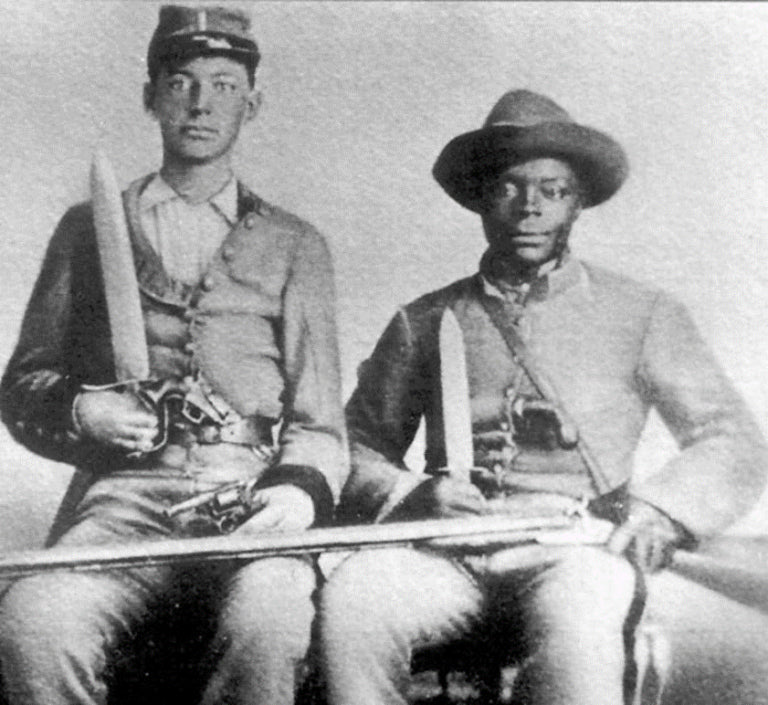
In honor of Black History Month, I thought it appropriate to talk about the part African-Americans played during the Civil War. Everyone knows that President Lincoln signed into law the Emancipation Proclamation on January 1, 1863. What you might not know is that he had no intention to free slaves in northern states, or states that he had jurisdiction over. In fact, in his home state of Illinois, freed slaves were disallowed, and Lincoln did nothing to reverse the fact.
On February 20, 1865, Confederate Congress authorized the arming of slaves. As we all know, it was too little too late, and the Confederacy crumbled months later.
During the War Between the States, the Union army enlisted black soldiers. However, most of them were forced to perform hard labor and didn’t engage in battles. By the war’s end, African Americans comprised less that one percent of the U.S. population, yet they made up 10 percent of the Union army. Altogether, 180,000 black men enlisted, which was more than 85 percent of those eligible.
On the Confederate side, General Patrick Cleburne advocated enlisting slaves to fight for the cause in return for their freedom. But after he was killed in 1864, the idea fizzled until it was again raised in November 1864 by President Jefferson Davis. The Confederate Congress authorized enlisting 300,000 black soldiers in March 1865, but the war ended the following month. Speculation arises that if the war had ended sooner, Lincoln probably would not have signed the Emancipation Proclamation into law. The Confederacy missed the opportunity to tap into their largest source of manpower, and were thus so outnumbered that they were doomed to fail.
My novel, A Beautiful Glittering Lie, discusses the events that took place during the War Between the States from the onset of the war up through December 1982. This book is based on a journal written by R.T. Cole, who served with the 4th Regiment, Alabama Volunteer Infantry, and gave his first-hand accounts of the battles, camp life, and descriptions of the soldiers who served.

